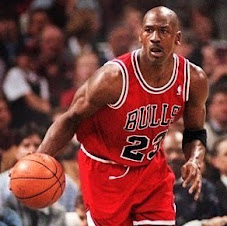Madonna - What it feels like for a girl
Uploaded by foxysoul. - See the latest featured music videos.
Here are the first four prompts you may choose from for your research paper. We will discuss the final four prompts this Wednesday.
Female Empowerment Songs
In 1964, Leslie Gore’s reminded men everywhere that “you don’t own me.” In 1978, Gloria Gaynor emerged from a break-up with the mantra: “I will survive.” In 1995, Alanis Morissette declared to her former lover that “every time I scratch my nails down someone else's back, I hope you feel it.” Female pop, rock, and now hip-hop, artists have a long tradition of using their medium as a platform for female empowerment. Sometimes subtly, sometimes aggressively, many women have publicly taken men to task through music. Trace the history of female-centered songs from the 1950’s through today. Identify and examine a minimum of four female empowerment songs from different decades. In doing so, consider the social environment in America during these times. What was the mood of the country at the times of these songs and were these songs a reaction to those times?
The History of Hair in America
Hair is often overlooked as a major indicator of cultural norms, but from Samson and Delilah to Repunzel to hippies, it has left its mark on many societies. Why have hairstyles made such a statement throughout American history? For example, what are some of the ways we have used hair to both oppress one another and declare individual freedom? Have the rules for hair been different for women than for men? And how have American attitudes toward hair mirrored those of the world and how have they been different? Examine the historical significance of hair in America.
Homosexuals in the Military
Conventional wisdom in the United States has long held that homosexuality is incompatible with military service. Yet other nations, including many of our allies, have little or no restrictions on homosexuals in the military. What should be the place of homosexuals in our armed forces? Are they, as some argue, destructive to institutional morale? Or is the practice of banning homosexuals discriminatory and hypocritical? Likewise, in light of two concurrent wars, is the policy of “Don’t ask, don’t tell” (DADT) still merited? And now that President Obama has called for DADT’s repeal, where does the fight over gay service members shift to? Examining both sides, evaluate the issue of homosexuals in the US military.
The Impact of Title IX in Women's Sports
Reading: "No person in the U.S. shall, on the basis of sex be excluded from participation in, or denied the benefits of, or be subjected to discrimination under any educational program or activity receiving federal aid," Title IX has, among other things, revolutionized women’s roles in sports. But what was it like for female athletes prior to Title IX? How was Title IX brought to fruition? And what has been the impact of Title IX at the collegiate and professional levels of sports? Would the likes of the Williams Sisters, Cynthia Cooper, and Mia Hamm have been possible without it? What challenges do female athletes still face, and how is Title IX threatened today? Examine the history and future of this landmark law.



.jpg)






No comments:
Post a Comment